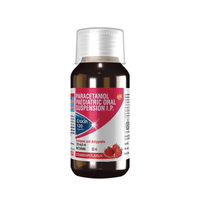Aciloc D 10 mg/150 mg Tablet

Rs.42.80for 1 strip(s) (10 tablets each)
food interaction for Aciloc D
alcohol interaction for Aciloc D
pregnancy interaction for Aciloc D
lactation interaction for Aciloc D
food
alcohol
pregnancy
lactation
Aciloc D 10 mg/150 mg Tablet may be taken with or without food, but it is better to take it at a fixed time.
None
None
CAUTION
It is unsafe to consume alcohol with Aciloc D 10 mg/150 mg Tablet.
UNSAFE
Aciloc D 10 mg/150 mg Tablet is generally considered safe to use during pregnancy. Animal studies have shown low or no adverse effects to the developing baby; however, there are limited human studies.
SAFE IF PRESCRIBED
Aciloc D 10 mg/150 mg Tablet is probably unsafe to use during breastfeeding. Limited human data suggests that the drug may pass into the breastmilk and harm the baby.
CONSULT YOUR DOCTOR
SALT INFORMATION FOR Aciloc D
Dicyclomine(10mg)
Uses
Dicyclomine is used in the treatment of abdominal pain and irritable bowel syndrome.
How it works
Dicyclomine is an anticholinergic medication. It works by relaxing the muscles in the stomach and gut (intestine). It stops sudden muscle contractions (spasms), thereby relieving cramps, pain, bloating, and discomfort.
Common side effects
Nausea, Dizziness, Blurred vision, Dryness in mouth, Nervousness, Drowsiness, Headache, Vomiting, Constipation, Psychosis, Diarrhea, Photophobia, Dyspepsia, Abdominal pain, Insomnia (difficulty in sleeping), Confusion, Hallucination, Dry skin, Reduced bronchial secretions, Palpitations, Fast heart rate, Cycloplegia (paralysis of the ciliary muscle of the eye), Dilatation of pupil, Discomfort when urinating, Rash
Ranitidine(150mg)
Uses
Ranitidine is used in the treatment of gastroesophageal reflux disease (acid reflux) and peptic ulcer disease.
How it works
Ranitidine is a histamine H2 receptor blocker that reduces the amount of acid made in the stomach. It relieves acid-related indigestion and heartburn.
Common side effects
Headache, Diarrhea, Gastrointestinal disturbance, Blood disorder, Intrahepatic cholestasis, Hypersensitivity, Disorientation (alteration of mental status), Confusion, Anxiety, Agitation, Depression, Decreased libido, Insomnia (difficulty in sleeping)
SUBSTITUTES FOR Aciloc D
20 Substitutes
20 Substitutes
Sorted By
 Rs. 18save 59% more per Tablet
Rs. 18save 59% more per Tablet Rs. 22save 50% more per Tablet
Rs. 22save 50% more per Tablet Rs. 5.29save 88% more per Tablet
Rs. 5.29save 88% more per Tablet Rs. 5.77save 87% more per Tablet
Rs. 5.77save 87% more per Tablet Rs. 16.50save 63% more per Tablet
Rs. 16.50save 63% more per Tablet
Expert advice FOR Aciloc D
- Take it at the same time every day to help you remember to take it.
- It may cause dizziness or drowsiness. Use caution while driving or doing anything that requires concentration.
- Dry mouth may occur as a side effect. Frequent mouth rinses, good oral hygiene, increased water intake and sugarless candy may help.
- It may make you sweat less. Avoid doing things that may cause you to overheat such as exercise.
- Avoid consuming alcohol while taking Dicyclomine as it can cause excessive drowsiness and increase your risk of stomach problems.
- Inform your doctor if you experience severe or long-lasting pain in your stomach.
Frequently asked questions FOR Aciloc D
Dicyclomine
Q. Is Dicyclomine safe?
Dicyclomine is safe if used at prescribed doses for the prescribed duration as advised by your doctor
Q. Is Dicyclomine gluten free?
Dicyclomine active drug does not contain gluten. Read the label instruction of the brands your doctor prescribes you, for gluten content
Q. Does Dicyclomine help nausea?
Dicyclomine is not known to relieve nausea. Nausea is a common side effect of Dicyclomine.
Ranitidine
Q. Can I take Ranitidine empty stomach?
Ranitidine may be taken with or without food. It can be taken once daily before bedtime or twice daily in the morning and before bedtime, as recommended.
Q. How long does it take for Ranitidine to start working?
Ranitidine starts working as fast as 15 minutes from when it is given. Its effect is seen to last all day or all night.
Q. What is the difference between Ranitidine and omeprazole?
Ranitidine and Omeprazole belong to different groups of medicines. While Ranitidine belongs to histamine H2 antagonists group, Omeprazole belongs to proton pump inhibitors group. These medicines (Ranitidine and Omeprazole) work by reducing the amount of acid made by the stomach, to give relief of symptoms and allow healing to take place.






















